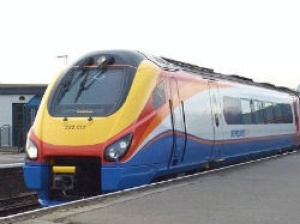Which? reveals worst performers on UK rail network

The latest Which? train satisfaction survey reveals commuters are bearing the brunt of poor service, as the organisation finds rail operators aren’t doing enough to let delayed passengers know their rights on compensation.
For the fourth annual satisfaction survey Which? scored train companies based on the responses of over 7,300 train travellers when asked about their journeys over the last 12 months.
Customer scores are based on overall satisfaction and the likelihood of recommending that train company to a friend.
Which? also asked people to rate how they felt about factors like reliability, punctuality, value for money and cleanliness.
Three in ten rail passengers told the consumer group they had suffered a delay when they last travelled, while three quarters of those held up for more than an hour said they were not told that this meant they qualified for a full refund.
ADVERTISEMENT
Southern was the worst for delays with four in ten saying they were held up the last time they travelled, in contrast, C2C was the least delayed with around one in ten passengers reporting a delay on their last journey.
Which? found the best operator for letting passengers know their rights on delays was London Overground, who told four in ten customers when they were entitled to a full refund on their last journey.
Thameslink & Great Northern/First Capital Connect scored the lowest on overall satisfaction with a score of 43 per cent.
All of the six lowest scoring train operators are also some of the biggest, covering commuter networks in the South East network around London.
Which? executive director Richard Lloyd, said: “Long delays and consistently low levels of customer service are driving commuters to distraction.
“Passengers often have little or no choice as to the rail companies they travel with, so as ticket prices continue to rocket, more must be done to improve customers’ satisfaction and to inform people of their right to a refund as a result of delays.”

